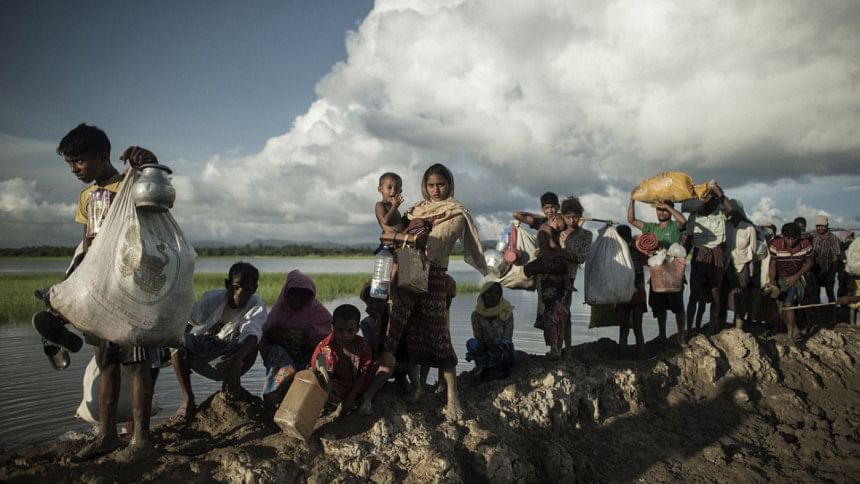Asean divided on Rohingya crisis: Poll

Opinions within South-east Asia are highly divided on Myanmar's Rakhine crisis and the country's handling of its Rohingya Muslim minority.
Asean, bound by its charter of non-interference, has been criticised for not taking stronger action to protect the Rohingya, over 700,000 of whom had fled from Myanmar to Bangladesh following a brutal military crackdown in Rakhine state in late 2017.
The State of South-east Asia: 2020 survey by ISEAS - Yusof Ishak Institute found that 54.6 per cent of respondents either disapproved or strongly disapproved of the way Asean is dealing with the Rakhine issue.
With the exception of Myanmar, Vietnam and Laos, the majority of respondents in each Asean member state did not approve of Asean's response to the Rakhine crisis.
Within this disapproving group, 43 per cent argue that "Asean should mediate between the Myanmar government and the Rakhine and Rohingya communities".
The second-most popular option was that Asean should "step up diplomatic pressure on Myanmar". The least popular suggestion was that Asean should lead a regional peacekeeping operation in Rakhine state.
Meanwhile, about 61 per cent of respondents are against resettling the Rohingya in their respective countries.
This opposition was found even among respondents from Brunei and Malaysia, predominantly Muslim countries.
The Rohingya were more welcome in the Philippines and Indonesia, where 61.3 per cent and 56.1 per cent respectively said yes.
"It is alarming that 66 per cent of the Myanmar respondents indicate their unwillingness to resettle the Rohingya people in their country, a proposition that - if shared by the country's leadership and public - would surely put paid to efforts towards an amicable solution to the crisis," the authors noted.
Copyright: The Straits Times/ Asia News Network (ANN)

 For all latest news, follow The Daily Star's Google News channel.
For all latest news, follow The Daily Star's Google News channel. 








Comments